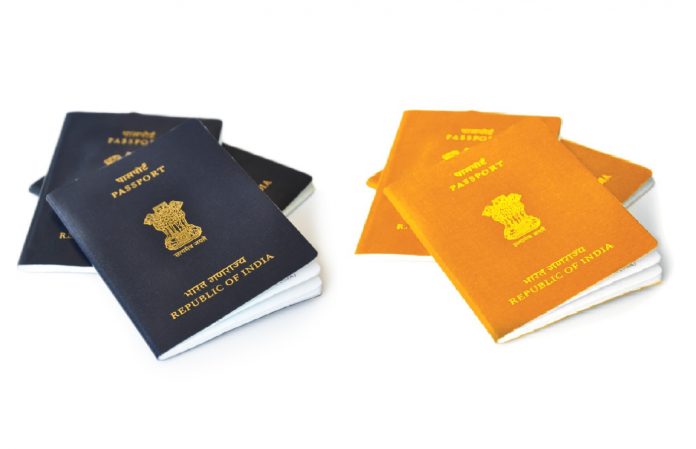India has shelved a plan to change the colour of the passport for citizens based on their socioeconomic background.
The Indian government has also deferred a plan to drop last page that served as address proof, Gulf News reported on Tuesday.
Indian expats in the UAE had opposed the plan to change the colour from navy blue to orange for people with Emigration Clearance Required (ECR) status issued for applicants who have not passed matriculation (grade 10) and not paying income tax.
The move comes after a Dubai-based lawyer had filed a Public Interest Litigation (PIL) in the Kerala High Court that issued a notice to the government of India seeking clarification on the issue.
The petitioners challenged the plan arguing that changing the passport colours on the basis of socioeconomic background and education would be a violation of right to privacy and equality.
The petition was filed on January 25 by Shamsuddeen Karunagappally, a Dubai-based lawyer and Shajahan, a resident of Kollam district of the south Indian state of Kerala who couldn’t complete his Grade 10.
The foreign ministry said it would continue with the current practice of printing the last page of the passport and not to issue a separate passport with an orange jacket to ECR (Emigration Clearance Required) passport holders.
Passports currently are issued in three colours – white for government officers, red for diplomats and blue for people. “After comprehensive discussions with the various stakeholders, the foreign ministry has decided to continue with the current practice of printing of the last page of the passport and not to issue a separate passport with orange colour jacket to ECR passport holders,” Foreign Ministry spokesperson Raveesh Kumar said in a statement.
Earlier, the Indian government proposed to issue orange-coloured passport jackets to its citizens who have not completed high school education [Grade 10] and hence require emigration clearance to be employed overseas.
Speaking to the Dubai-based paper on Tuesday, Karunagappally said, the government’s decision was against the constitution, violates privacy and is discriminatory. “The central government’s decision will lead to segregation of people on the basis of their academic qualifications and economic status,” he said.
“The Kerala High Court admitted the case on Monday and issued a notice to the central government,” Karunagappally said.
Last week, he visited India to file the PIL and appeared in the Kerala High Court on Monday.





